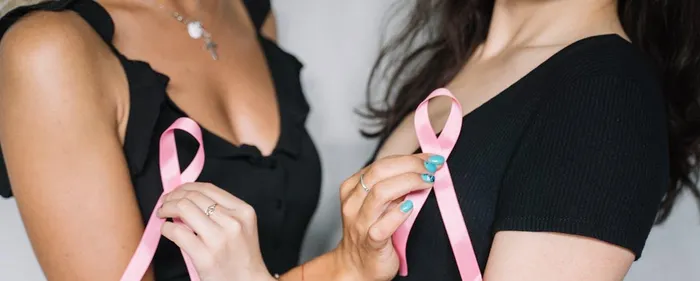Coping with a breast cancer diagnosis
Embracing your journey one emotion at a time

October marks Breast Cancer Awareness Month in South Africa.
Image: Anna Tarazevich /Pexels
RECEIVING a breast cancer diagnosis is life-changing for most, and what I’ve learnt is that it is as much an emotional crisis as it is a medical one. Along with medical decisions that have to be made are overwhelming emotions. While everyone’s breast cancer journey is unique, there are some coping skills that may benefit anyone on this journey.
Feel your feelings
It’s common for people to tell you to "be strong" and "think positive", but as a psychologist, I know just how effective it is to feel your feelings. It helps to acknowledge your emotions and to understand why they are surfacing. Breast cancer can be life changing, so it’s okay to not be okay upon receiving a diagnosis. Feeling sad or anxious is not a sign of weakness – these are normal emotions in an abnormal situation.
Focus on what you can control
While a lot may seem out of your control upon being diagnosed, it helps to focus on the things that you can control. You can control which sources of information your turn to, what questions you ask your doctors, your daily routine, who you surround yourself with, what you consume and what you give your attention to. Having a routine that works for you can help you feel grounded when things get overwhelming.
Identify your support network
Support comes in different forms and the type of support that each of us find meaningful will also differ. Support can come from different places as well – family, friends, professionals, faith-based communities, support groups or even online communities. It’s helpful to recognise the support that you would most benefit from. While asking for help is never easy, some people find it easier to offer support when they know what support is needed. It could be practical (like accompanying you to an appointment or preparing a meal), emotional (someone to just listen and hold space for you), professional (for advice) or spiritual (for example,. praying for/with you).
Use effective coping skills
While you may not be able to change the reality of your diagnosis, you can choose how to face each day. Make time for physical and emotional practices, depending on your energy and capacity. Things like simple breathing exercises, meditation, walks in nature and prayer can make a difference to your mental state. Think about the unique things that bring you peace.
Prioritise holistic self care
Listen to your body. Rest when you need to and try to stick to consistent sleep routines where possible. Stay hydrated and well nourished. Fatigue is a common challenge, so be mindful of your capacity. The journey can be overwhelming, so focus on one thing at a time.
Find meaning in your suffering
A life changing diagnosis can be a reminder to re-evaluate our lives and our priorities. Finding meaning, whether through spirituality, nature or time with loved ones can buffer against the stress and foster resilience. Reflecting on what’s truly important to you can bring comfort and guide decisions related to treatment.
Coping with a breast cancer diagnosis is not about being positive. It’s about accepting what you cannot control focusing on what you can control, discovering your own inner strength, recognising your priorities and finding renewed clarity in life.

Rakhi Beekrum
Image: Supplied
Rakhi Beekrum is a counselling psychologist in Durban North with more than 16 years’ experience in individual and couples’ therapy. Her expert advice has been featured in print and digital media, on radio and television. She uses her social media platforms to spread mental health.
Related Topics: